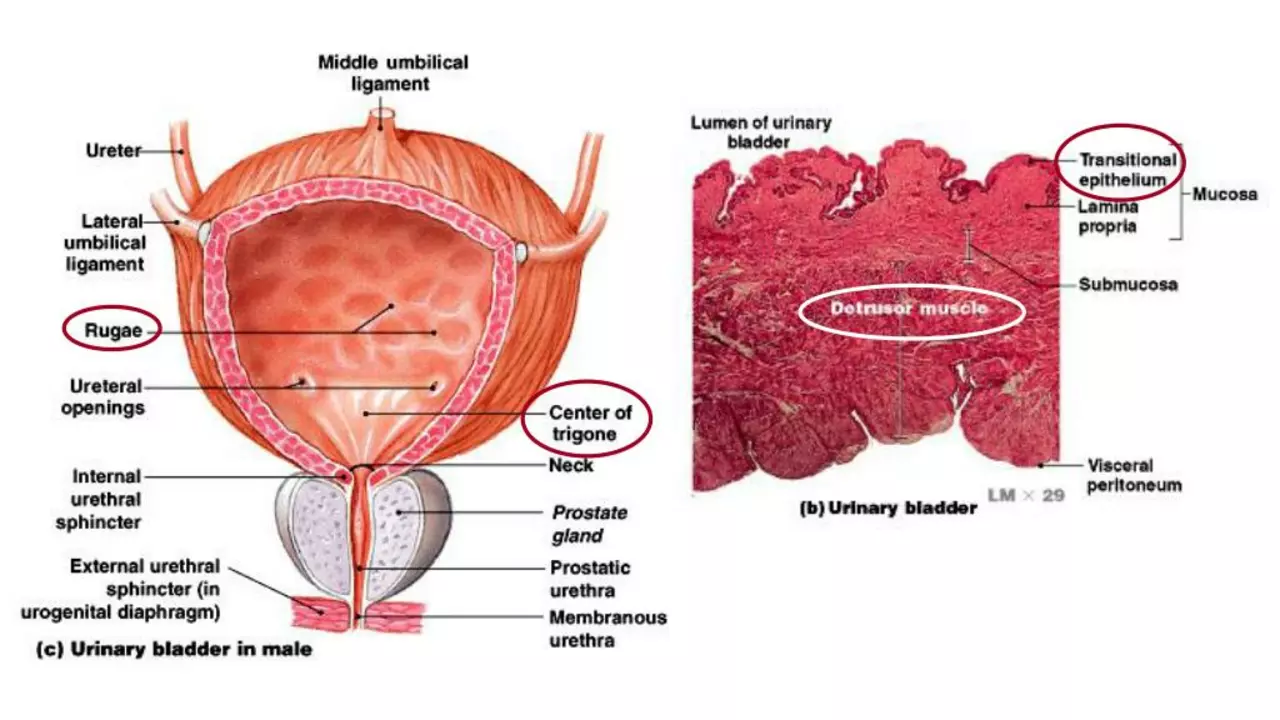Urinary retention: what it is and what to do
Urinary retention means you can’t empty your bladder fully or sometimes at all. It can come on suddenly and painfully, or build slowly so you only notice a weak stream, dribbling, or the feeling that your bladder never feels empty. Knowing the common causes, what tests you’ll likely get, and simple steps you can try helps you act quickly and avoid complications.
Acute versus chronic retention
Acute urinary retention hits fast. You may feel intense lower belly pain and be unable to pass urine — that’s an emergency and needs immediate medical attention. Chronic retention develops over weeks or months. Symptoms are subtler: poor flow, straining, frequent urination at night, and leaking after you go.
Causes vary. Men often have blockage from an enlarged prostate (BPH). In both men and women, bladder stones, severe constipation, pelvic organ prolapse, or strictures can block flow. Nerve problems from diabetes, spinal injury, multiple sclerosis, or after surgery can stop the bladder muscle from working. Certain medicines — antihistamines, some antidepressants, anticholinergics, strong pain meds — can cause or worsen retention. Recent anesthesia and pain after surgery can also lead to temporary retention.
Tests, treatments, and practical steps
At the clinic they often start with a bladder scan or a post-void residual test to see how much urine is left after you try to void. A urine test checks for infection. Blood tests and imaging (ultrasound or CT) or urodynamic studies may be used if the cause isn’t clear.
If you can’t urinate and are in pain, immediate catheterization will drain the bladder and relieve pressure. For men with BPH doctors commonly prescribe alpha-blockers (like tamsulosin) to relax the prostate and bladder neck. 5-alpha-reductase inhibitors help shrink the prostate over months. Surgery — for example TURP or other minimally invasive procedures — may be needed if medication doesn’t help. For nerve-related retention, intermittent self-catheterization, neuromodulation, or pelvic rehab are options. If an infection is present, antibiotics are used.
Simple, practical tips you can try while you wait for care: avoid medicines that dry you out, treat constipation, drink enough but don’t overload at once, try timed voiding and double voiding (pee, then try again a few minutes later), and use warm water over the lower abdomen or run water to help trigger urination. These tricks won’t replace medical care if you’re in severe pain or can’t pee at all.
Complications of untreated retention include urinary tract infections and kidney problems. If you have sudden inability to urinate, severe pain, fever, or vomiting, go to the ER. For milder or recurring symptoms, see your primary care doctor or a urologist — they’ll run tests and suggest the best plan based on the cause.
If you want, check our related articles for bladder control after stroke, medicines that affect urination, and options for managing prostate-related blockage. Quick action makes a big difference — don’t wait when the pain is sharp or you can’t empty your bladder.

